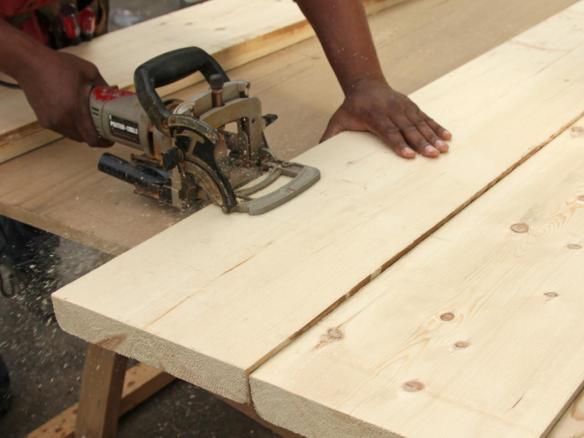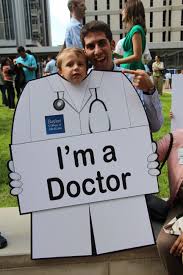“Do what you love to do, and do it with both seriousness and lightness.”*
 Photo credit
Photo credit
On the flight home yesterday I finished Big Magic: Creative Living Beyond Fear by Elizabeth Gilbert (She’s probably known to you for her NY Times Best Seller Eat, Pray, Love). For me, one of the overarching messages of her book was this – When you see what you do as your vocation (from Latin vocātiō, meaning “a call or summons”), and not just your job, it will transform how you view your work – a concept which I believe may be necessary (but not sufficient) to treat or prevent burnout.
As I read her thoughts on how to live a creative life, I realized that there were other ideas that applied to physicians, physicians in training and others who serve:
Just show up. Every day.
“Most of my writing life consists of nothing more than unglamorous, disciplined labor. I sit at my desk and I work like a farmer, and that’s how it gets done. Most of it is not fairy dust in the least”
Learning and practicing medicine (or any other field) means showing up – really showing up – every day. Everyone in the first year of medical school learns that it is different than college. Cramming for exams is not only ineffective, it’s just wrong. You are no longer studying for a grade on a test…. it’s now about the patients you will take care of in the future. The same holds true during residency and when you begin your practice. It’s not just when you are a trainee. Part of the “work” of medicine remains “unglamorous, disciplined labor”… keeping up with the literature, going to teaching conferences when you could be doing something else, finishing your hospital charts, being on call.
But the work of medicine is also about showing up every day in another sense, too – truly showing up for the people who rely on you – no matter what. That, too, can be “unglamorous, disciplined labor” when you are tired or stressed.
“Work with all your heart, because—I promise—if you show up for your work day after day after day after day, you just might get lucky enough some random morning to burst right into bloom.”
 Photo credit
Photo credit
“They are your patients… from the first day of medical school until you retire.
“Most of all, there is this truth: No matter how great your teachers may be, and no matter how esteemed your academy’s reputation, eventually you will have to do the work by yourself. Eventually, the teachers won’t be there anymore. The walls of the school will fall away, and you’ll be on your own. The hours that you will then put into practice, study, auditions, and creation will be entirely up to you. The sooner and more passionately you get married to this idea—that it is ultimately entirely up to you—the better off you’ll be.”
Caring for others gives us joy but also gives us the responsibility to know the best thing to do for them. Whether you are a first year student, 3rd year resident or a PGY35 attending, we are all still learning. “Life long learning” is not just a phrase, it’s the reality of what we do.
 Photo credit
Photo credit
It’s called the practice of medicine for a reason.
“It’s a simple and generous rule of life that whatever you practice, you will improve at.”
Learn the art of deliberate practice early. Deliberate practice, to use a musical analogy I learned in Cal Newton’s fantastic book So Good They Can’t Ignore You: Why Skills Trump Passion in the Quest for Work You Love, doesn’t mean playing the piece from start to finish 20 times in an hour. It means spending 55 minutes on the small section that you struggle with, repeating it 100 times before you play the piece through once. It means instead of reading the comfortable material on the anatomy of the kidney, you deliberately tackle how the nephron works. It means that instead of doing the computer-simulated cholecystectomy 10 times you spend an hour tying intracorporeal knots in the trainer. Find the thing that is not easy and practice it over and over until it becomes easy.
 Photo credit
Photo credit
There is Peril in Perfectionism
“There are only so many hours in a day, after all. There are only so many days in a year, only so many years in a life. You do what you can do, as competently as possible within a reasonable time frame, and then you let it go.”
One of the greatest attributes of those who care for others is their devotion to the people they serve. But perfectionism, taken to its extreme, is dangerous. Extending your time to study for Step 1 beyond what is reasonable to try to get a higher score, revisiting decisions about patient care to the point of anxiety, worrying that your GPA has to be perfect are all counterproductive. The motivation to do well is like a cardiac sarcomere – a little worry will make you more effective, but stretched too far, there won’t be any output at all.
 Photo credit
Photo credit
Curiosity can overcome fear.
“No, when I refer to “creative living,” I am speaking more broadly. I’m talking about living a life that is driven more strongly by curiosity than by fear.”
It’s something most students don’t realize, but no matter how long you practice medicine, there are days when you are afraid. It takes courage to do what we do. Remember, being courageous is not an absence of fear, it’s being able to do what’s right despite the fear. I agree complete with Elizabeth Gilbert that curiosity helps. When you have something that doesn’t go the way you expect or frightens you, instead of beating yourself up (“I should have studied more”….”I could have made a different decision”…etc…etc) become curious. If you are thinking about a complication, commit to finding everything you can about the procedure and how to prevent complications. If you didn’t do as well on your test as you thought you should, look up different techniques to study, take notes, and remember information, and go back to make sure you really understood what was being tested.
Even more powerful than curiosity is gratitude. Fear and gratitude cannot exist at the same moment. Try it – the next time you are about to snap because your EMR freezes be grateful that you can see the computer, be grateful you have work, be grateful you have been trained to help other human beings …and see what happens.
“We must have the stubbornness to accept our gladness in the ruthless furnace of this world.”
 Photo credit
Photo credit
Your worth is not the same as your “success”.
“You can measure your worth by your dedication to your path, not by your successes or failures.”
Wow…. This one is so important.
It’s not what you make on Step 1. It’s not how many cases you do, how many patients you see or how much money you make. This concept is taught by every religion and philosopher I know – for a reason. Be devoted to doing the best you can and to forgiving yourself (and learning from it) when you fall short.
 Photo credit
Photo credit
One last thing….for medical students trying to choose a specialty – forget about finding your passion.
This is a little longer quote than the others, and mirrors a similar message in So Good They Can’t Ignore You: Why Skills Trump Passion in the Quest for Work You Love .
Find something, even a little tiny thing, that makes you curious (or fills you with wonder) and follow it. Dedicate yourself to following that curiosity and it will likely lead you to your career.
“May I also urge you to forget about passion? Perhaps you are surprised to hear this from me, but I am somewhat against passion. Or at least, I am against the preaching of passion. I don’t believe in telling people, “All you need to do is to follow your passion, and everything will be fine.” I think this can be an unhelpful and even cruel suggestion at times. First of all, it can be an unnecessary piece of advice, because if someone has a clear passion, odds are they’re already following it and they don’t need anyone to tell them to pursue it…..I believe that curiosity is the secret. Curiosity is the truth and the way of creative living. Curiosity is the alpha and the omega, the beginning and the end. Furthermore, curiosity is accessible to everyone…..In fact, curiosity only ever asks one simple question: “Is there anything you’re interested in?” Anything? Even a tiny bit? No matter how mundane or small?….But in that moment, if you can pause and identify even one tiny speck of interest in something, then curiosity will ask you to turn your head a quarter of an inch and look at the thing a wee bit closer. Do it. It’s a clue. It might seem like nothing, but it’s a clue. Follow that clue. Trust it. See where curiosity will lead you next. Then follow the next clue, and the next, and the next. Remember, it doesn’t have to be a voice in the desert; it’s just a harmless little scavenger hunt. Following that scavenger hunt of curiosity can lead you to amazing, unexpected places. It may even eventually lead you to your passion—albeit through a strange, untraceable passageway of back alleys, underground caves, and secret doors.
 Photo credit
Photo credit
*Italics are quotes from Big Magic: Creative Living Beyond Fear. Since I read this on my Kindle, I don’t have page numbers!
































